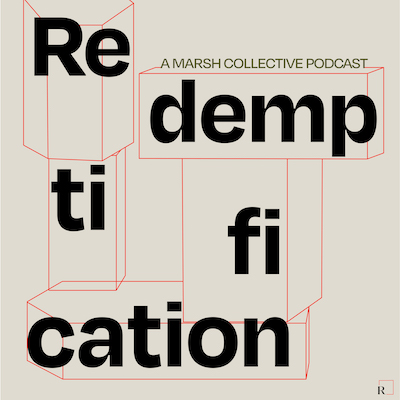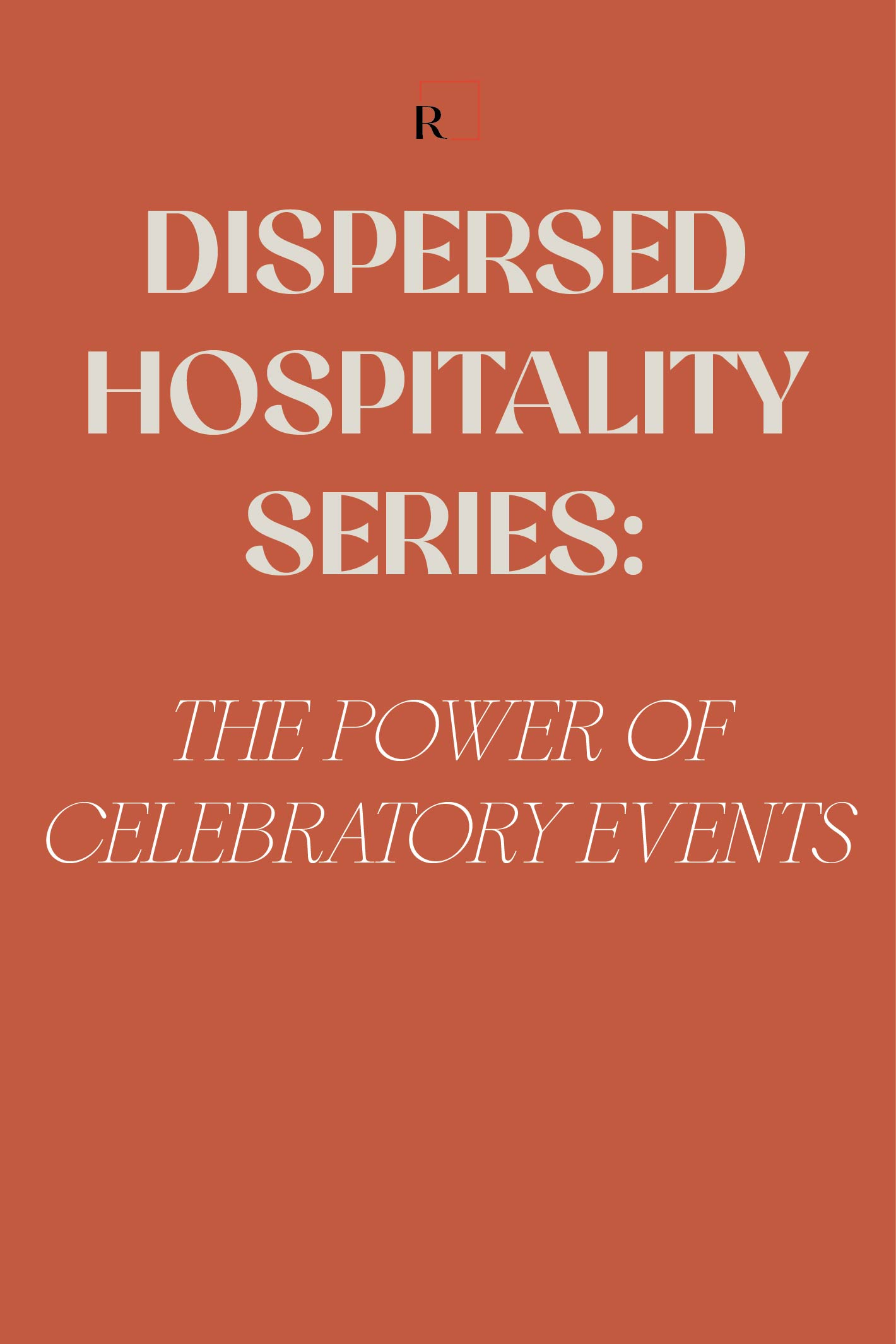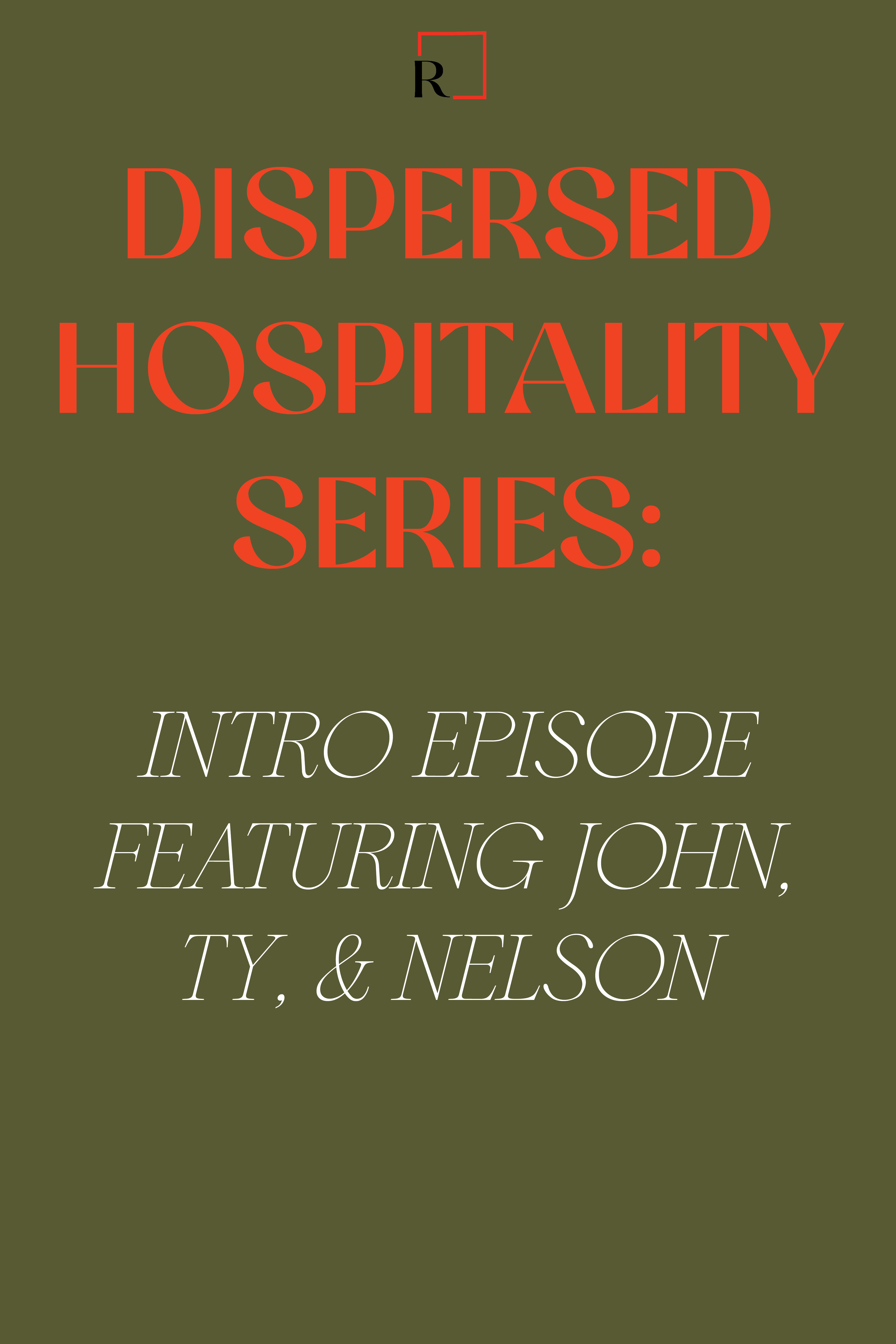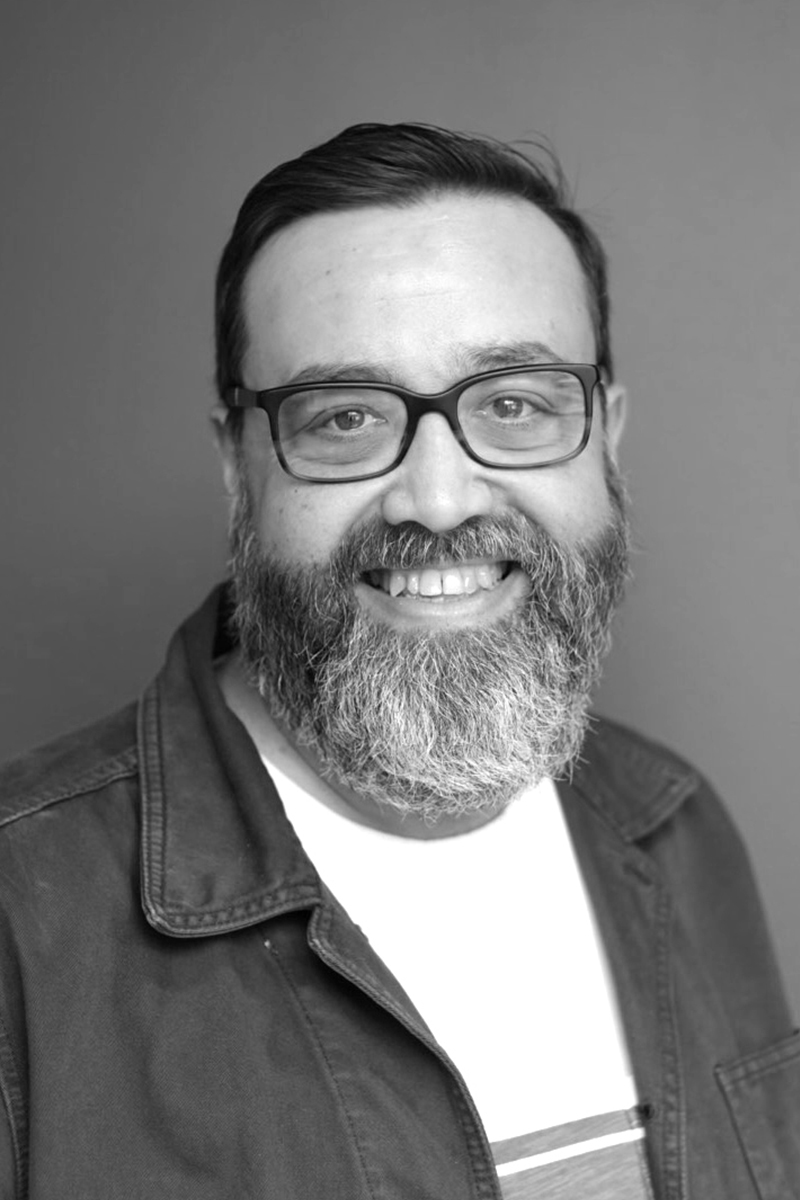Beyond Transactions: Building a Life and Business That Matter with special guest Brent Beshore
Welcome to The Redemptification Podcast, where transformation meets purpose.
In this episode, host John Marsh sits down with entrepreneur and investor Brent Beshore to explore the deeper questions of life, leadership, faith, and the pursuit of meaningful relationships. Brent shares his personal journey—one shaped by mistakes, redemption, and a growing awareness of what truly matters.
From starting a business for the wrong reasons to discovering the sacred responsibility of family, Brent speaks candidly about how his heart has been reshaped over time. He discusses the importance of gratitude, vulnerability, and being fully known and fully loved—principles that have reshaped not only his personal life but also his approach to business.
Together, John and Brent reflect on the power of confession, the need for authenticity in leadership, and the dangers of living in isolation. Brent challenges the notion of self-made success, instead advocating for a life deeply rooted in community, generosity, and service. He redefines business as an opportunity for meaningful connection rather than mere transactions, emphasizing that wealth, power, and influence are mere shadows of a greater calling.
Throughout the conversation, Brent shares wisdom drawn from faith, family, and experience. He discusses how he’s structured his investment firm around long-term relationships and ethical principles, resisting the short-term, transactional nature of traditional finance. He also offers insights into health, fitness, and personal discipline, highlighting how holistic living fuels his ability to lead and serve well.
Insights & Inspirations
- Brent Beshore (05:24): God got so gracious and kind, he does this over and over again. I got married for the wrong reasons. I didn’t want to have children. I started my business for the wrong reasons. And then as God’s changed my heart, it’s like I turn around and I look at this thing that I have now and just is this beautiful family.
- Brent Beshore (07:18): All I can say is from my experience when my heart is a heart of gratitude and care towards my family, things go great and there’s a richness and a texture to life that you just can’t, I don’t know how I’d have it any other way
- Brent Beshore (08:12): something you’ve taught me how to do, John, is to ask people what is the thing that I do when you feel most loved? And I ask my girls that question at least once a week if not more.
- John Marsh (09:35): It’s so important and it’s really to think about this idea of going to our children and saying, I was wrong in modeling. I was wrong for will you please forgive me and let them have the chance.
- Brent Beshore (11:53): God’s given me the most important, most sacred duty is to love my wife well and love my family well and raise our kids. There’s no one else who can do that job. There’s a lot of other people that can buy small businesses. There’s a lot of other people who can manage projects. There’s no one else who can be a father to my children and a husband and my wife.
- Brent Beshore (14:26): I heard a podcast recently, I think it was based on a couple books say that being isolated and alone is more harmful than smoking a pack of cigarettes a day.
- Brent Beshore (13:20): There’s two ways to live. We’re either going to live as if we are moist robots alone….. And then the other path is this path that I think I’m on now. I’m trying to stay on now, it’s the ancient path or the good way would be described in the Bible. And it’s a path where I’m fully known and fully loved with nothing to fear, nothing to hide and nothing to gain.
- Brent Beshore (17:46): And I would say the more I’ve followed that path, the more that my business relationships blossom. And I don’t even want to say it like that. I think that’s another thing is business relationships aren’t really different than friendships. They’re just different levels of intimacy and different levels of what we’re trying to do together. I mean, we create these buckets and I think they’re artificial. They’re artificial in the way that the best way to do business is not to be transactional. The best way to be in your friendships is not to be transactional. The best way to be in your marriage is not to be transactional. Don’t keep score
- Brent Beshore (19:14): What I’m advocating for is can we actually see one another instead of as a means to the end? As the end in of itself. And what if in some ways business is the excuse for relationship.
- Brent Beshore (24:02): And I would say is I hope the more and more that I follow an apprentice under Jesus, that I am constantly having cares, constantly having concerns, that I’m constantly having those feelings for other people. And I occasionally catch scarcity, occasionally catch scarcity.
- Brent Beshore (27:37): And it’s ironic when we forget that who we are, when we forget that we’re royalty is when we start building our own kingdoms.
- Brent Beshore (30:31): We are ambassadors of the kingdom of God called not for the future. We’re not called, yes, we’re also called the future, but we’re called to bring the kingdom of God here and now around us.
- Brent Beshore (44:01): I was entitled in the sense that I thought that I worked hard. I was like the self-made man. And look, no one’s self-made. Zero people are self-made. The concept that somehow you chose your own birth, you chose your own location, you chose your own talents, is absurd, right? So no one is self-made.
- Brent Beshore (45:03): And by the way, the pursuit of wealth or power or fame or beauty or sexual conquest or whatever the thing is that you to try every five star restaurant in the world or to try to whatever these goals that we set for ourselves, they do give your life purpose and meaning. The problem is not that they’re fake. The problem is that they’re real. They’re just a dim reflection of the real thing.
- Brent Beshore (50:05): And that’s where I see this world of brokenness, where we’re all having a will for our lives. We’re all having a design that we were trying to pursue, and then we measure our days by did we get what we want? I’m doing this imperfectly. I’m really trying to transform the way that I look at hour by hour, minute by minute as Lord, I want to do like Jesus. I want to hear from you.
- Brent Beshore (54:11): And so what we wanted to do is we wanted to provide a very clear set of values and clear set of rules of engagement where we force everyone who invests with us to be virtuous just by the nature of what they’re agreeing to
- Brent Beshore (56:40): And the traditional structures for those who aren’t typically in finance is called two and 20 with a 10 year time horizon. So you get whatever capital you take on, you get a 2% annual fee to kind of manage the capital and invest it. So that goes to paying for the team, paying for all the expenses, and then you get 20% of the upside after you return the capital back plus a return back to the investors, right?…. you typically get the capital in private equity for 10 years. So in a 10 year period you’ve got to go buy a bunch of stuff, hopefully tune it up and operate it, and then you got to go sell it. So by the nature, 10 years sounds like a long time. And by the way, if you said to me, Hey, you’re going to own a business for 10 years, that actually is a decently long period of time. That’s not a short time horizon. The problem is in order to find stuff, takes a long time to tune it up, takes a while, and then to sell it takes a while. And so the reality is that most private equity firms can’t buy anything for more than five years. Five years is kind of the maximum limit.
- Brent Beshore (58:43): We’re trying to be long-term oriented, trying to look at the leadership team and say, Hey, how can we be helpful? But building those relationships over a long period of time and being kind and generous, not nice, but kind and generous in that process, not just to the seller and not just to maybe the CEO, but also to look at every stakeholder group and say, okay, employees leadership team, the communities that we’re in, the suppliers, the customers, maybe even regulators in there. If it’s not a win-win for all those people, then you can’t be long-term not sustainable.
- Brent Beshore (01:00:47): Yeah, so what we’re doing here is the creation of content. So content is the only way to scale conversation.
- Brent Beshore (01:01:24): and scaling conversation allows us to repel the wrong people and attract the right people so people are naturally able to congregate around ideas and around people.
- Brent Beshore (01:02:14): So if content is the only way to scale conversation, events are the only way to scale relationship.
- Brent Beshore (01:02:42): That’s my goal. No matter what the event is, I want people to come there, meet somebody that they’ve never met before and say, you know what? I think that we’re called to be friends. And friends doesn’t mean how can I extract things from you, friend means how can I serve you? How can I be in relationship? How can I walk with you through life’s up and downs?
- Brent Beshore (01:10:52): You can tell when you go to a restaurant if they really care about who’s eating the food, you can tell when they don’t. And by the way, it doesn’t matter the price, hospitality and luxury are different things. Sometimes there’s an overlap, sometimes really high hospitality is luxurious, but those are not the same.
- Brent Beshore (01:12:18): I want to live an integrated holistic life that treats everything in my life the same way. I want to treat the same care and love that I show to my children. I want to show to people in business which show to people who come over to my house, which showed a guest that comes to capital camp or Main Street Summit. I want to treat them as made in the image of God as unique and beautiful.
- Brent Beshore (01:22:53): And so as I did, I’ve done hundreds and hundreds of hours of research. I mean, I was obsessed. I was like, okay, if this is something that God’s opening doors, I’m going to walk through them. I’m going to really try to be excellent at understanding what is good for me and what is not for good for me and why. And so the basis that you want to think about is we’re eating to fuel our body so we’re not eating. Yes, God gives us food for pleasure and we’re called to celebrate with food and all that. But the thing that we should be thinking about is how we’re fueling our body. And so we carry around even people who are lean around a tremendous amount of fat like fat stores to be able to use as fuel. So we have a fuel source that we’re able to store on our bodies. It helps us when we don’t have to eat ever. And in fact, that’s another thing I did was I started experimenting with fasting.
- Brent Beshore (01:26:19): On the workout side, there are really three category ways to challenge your body. That’s all exercises is challenge to your body. That’s asking your body for adaptation.
- Brent Beshore (01:26:42): But there’s three basic categories. You want to lift heavy weights to challenge your body that okay, you might have to lift heavy things. You might have to have power to be able to move certain things in a certain way.
- Brent Beshore (01:27:54): Second category is called VO two max, which is the maximum ability of your body to process oxygen. So this is when you are maxing out your aerobic capacity.
- Brent Beshore (01:29:45): And then the third category is some people call it zone two cardio, but it’s training for muscular endurance and cardiac endurance. So this is where the zone that you should feel is it’s easier to talk about in terms of how it should feel. And the breath is you should feel like you can sustain it all day.
- Brent Beshore (01:31:09): The best thing we can do for longevity and quality of life as well is workout.
- Brent Beshore (01:32:24): I would say there’s a book by a man named Peter Atia. He just came out this last year called Drive, and I would highly, highly recommend that you check it out. Or I’m sorry, his podcast is called The Drive. The book is called Outlive
Information & Links
- Connect and learn more about what we do at https://www.marshcollective.com/
- Connect with Marsh Collective on LinkedIn
- Connect with Marsh Collective on Facebook
- Outlive: The Science and Art of Longevity by Peter Attia MD
- Athletic Brewing Co. – website
- Brent Beshore
Closing Questions
What have you read that we should read?
- Living Life Backward: How Ecclesiastes Teaches Us to Live in Light of the End by David Gibson
- Becoming a King: The Path to Restoring the Heart of a Man by Morgan Snyder
Who do you know that we should know?
What have you done that we should do?
- Brent Beshore (01:38:43): Well, this one may be a little counterintuitive, and this is an area that we really didn’t talk too much about in the podcast to date. But the thing that we’ve done as a family that has probably had the greatest impact on us and given us the greatest joy has been to be kind of outrageously generous with our money.




